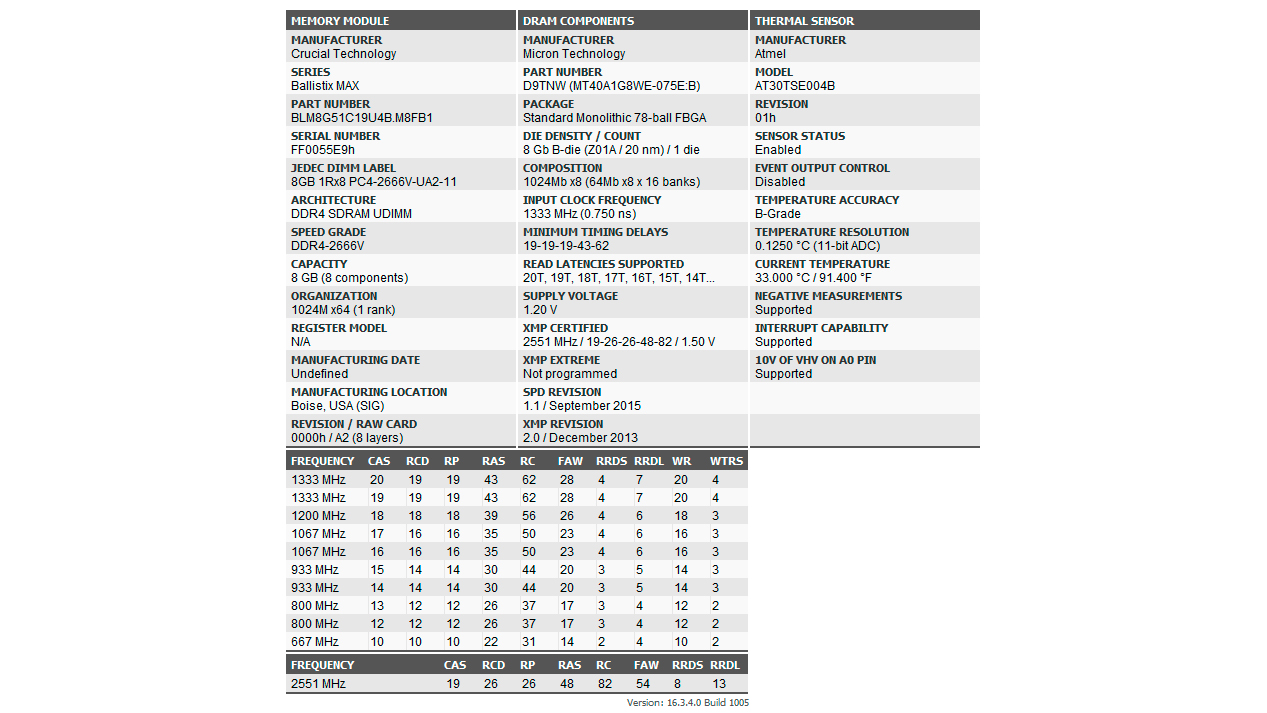Tom's Hardware Verdict
The Ballistix Max DDR4-5100 could easily be anybody's dream memory kit. However, the hardware requirements and the kit's eye-watering price tag make it an extremely niche product.
Pros
- +
Fastest memory kit on the market
- +
Fantastic XMP performance
- +
Fun to overclock
Cons
- -
Costs a small fortune
- -
Plug-n-Play is out of the question
- -
Steep hardware requirements
Why you can trust Tom's Hardware
Extremely fast memory kits are often frowned upon because of their premium pricing and the fact that modern processors don't dramatically benefit from the ultra-fast data rates. Nevertheless, that doesn't stop memory vendors from climbing the frequency ladder to produce the fastest memory that the market has ever seen, often just to make a statement.
Several memory specialists have released DDR4-5000 memory kits, with the big names including G.Skill, Corsair, and Adata all having claimed their bragging rights. However, Crucial has effectively one-upped the other brands by releasing the new Ballistix Max DDR4-5100 memory to claim the title of the fastest retail memory kit that money can buy.
On paper, DDR4-5100 looks absolutely spectacular, but it remains to be seen if it has any significant impact on real-world performance. And that is exactly what we're here to find out about today.
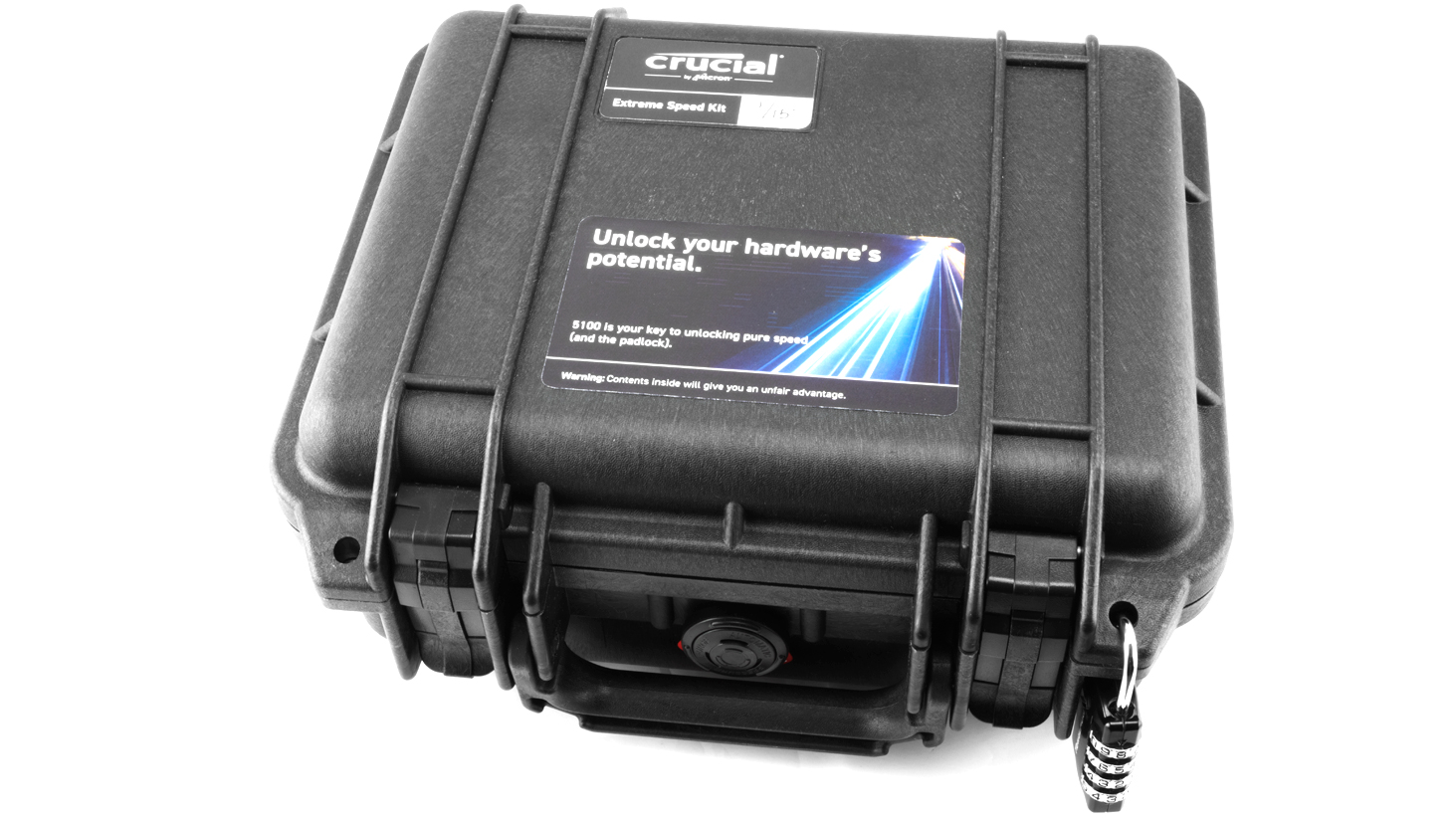
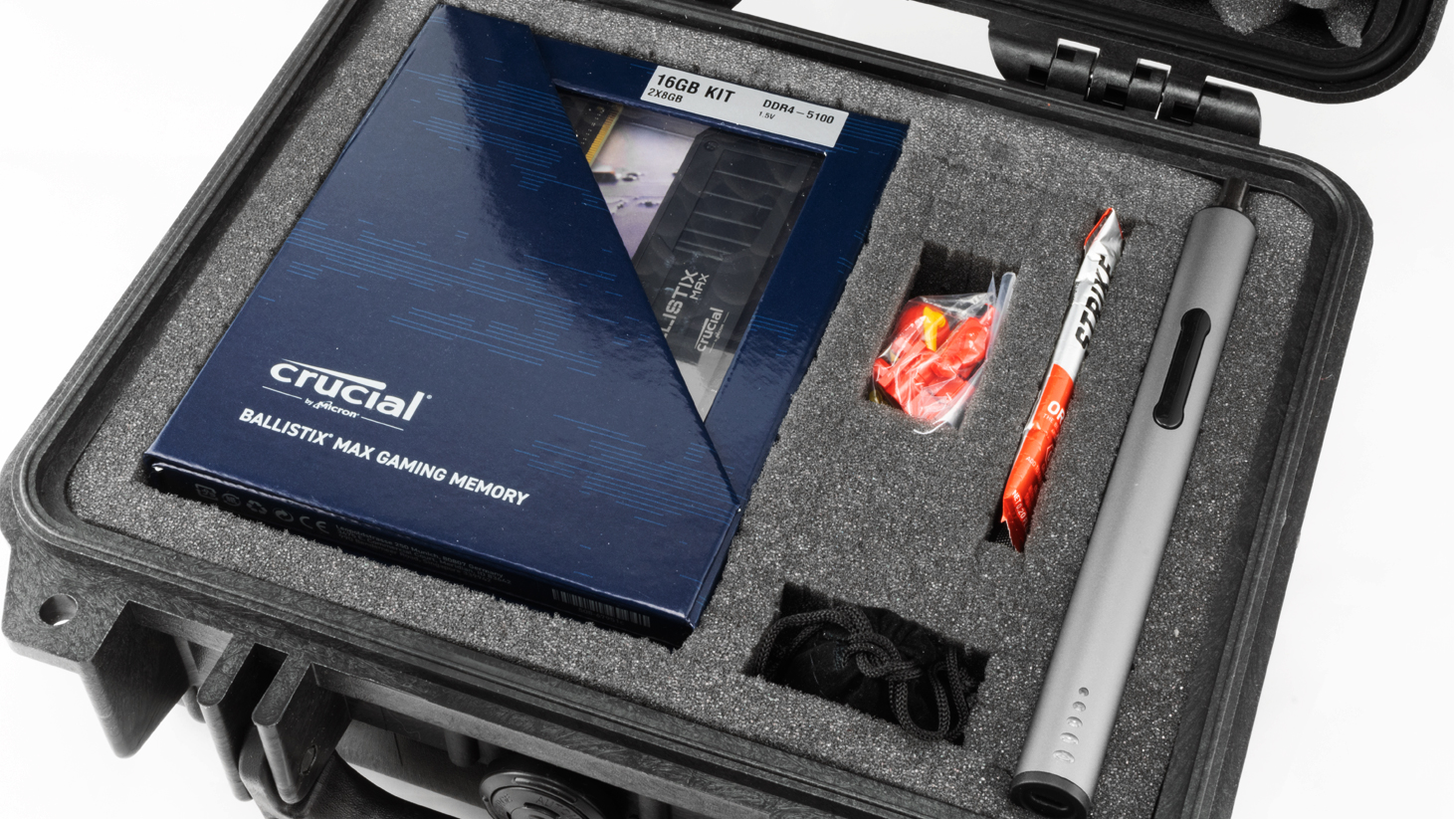
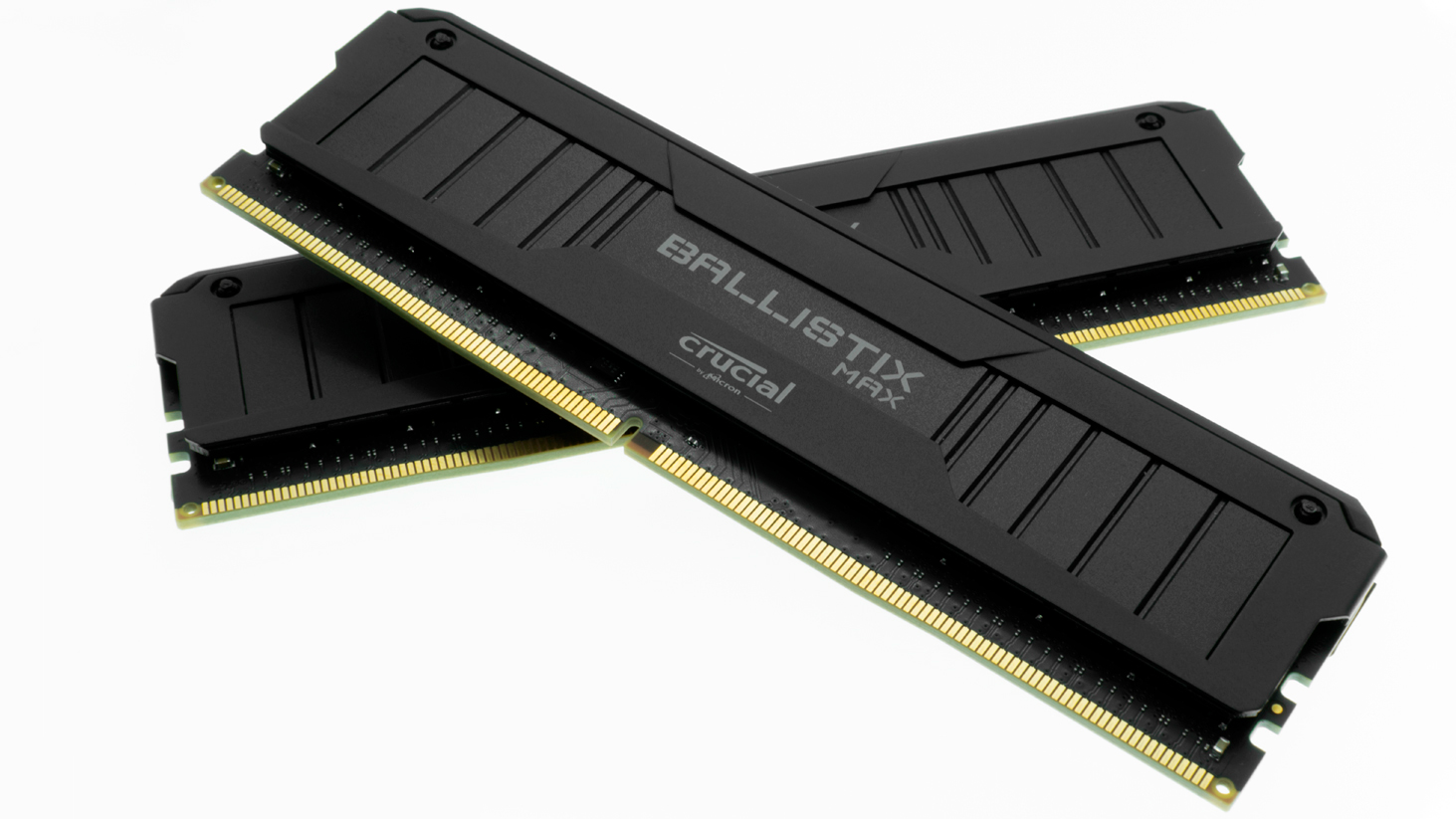
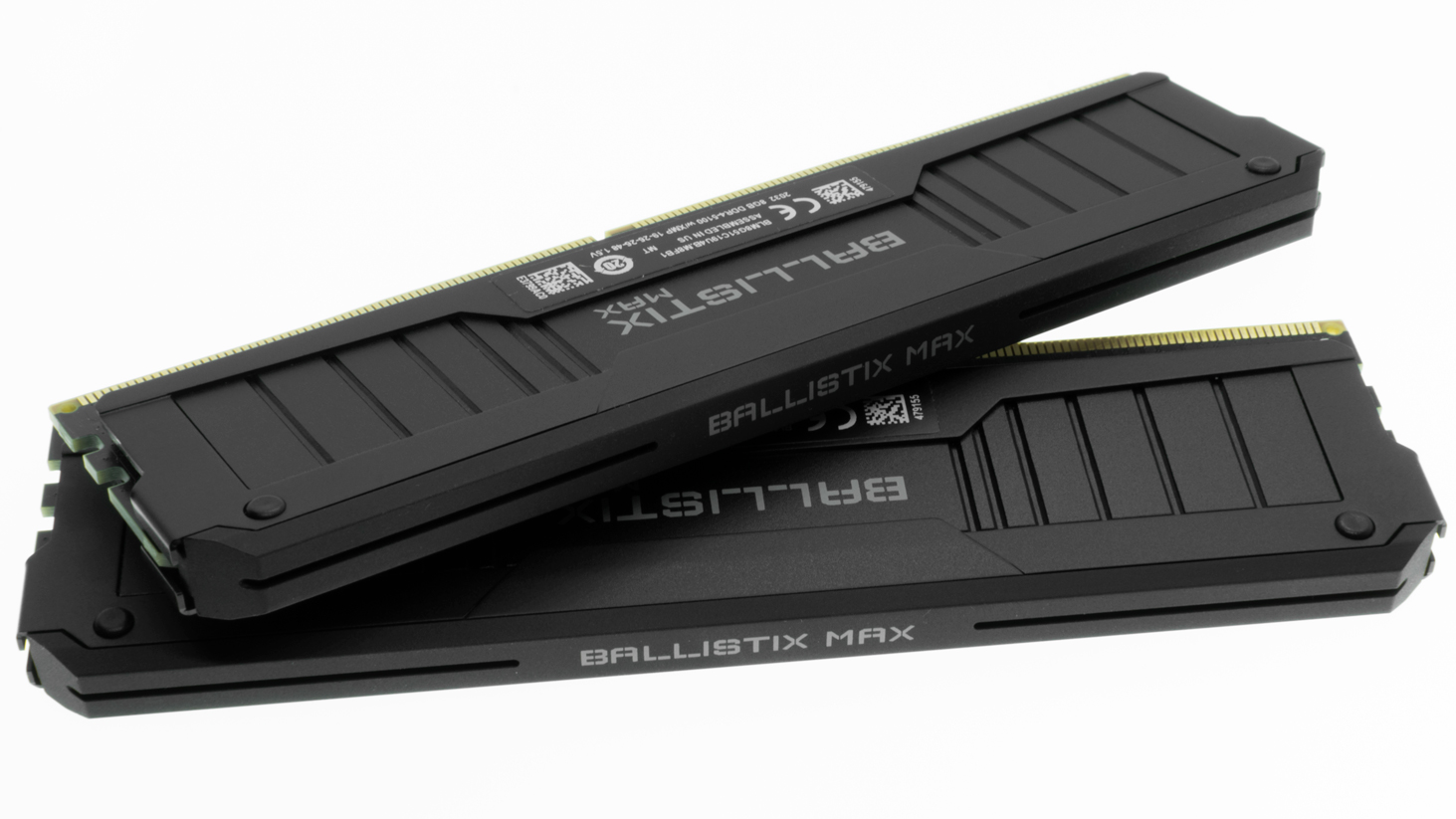
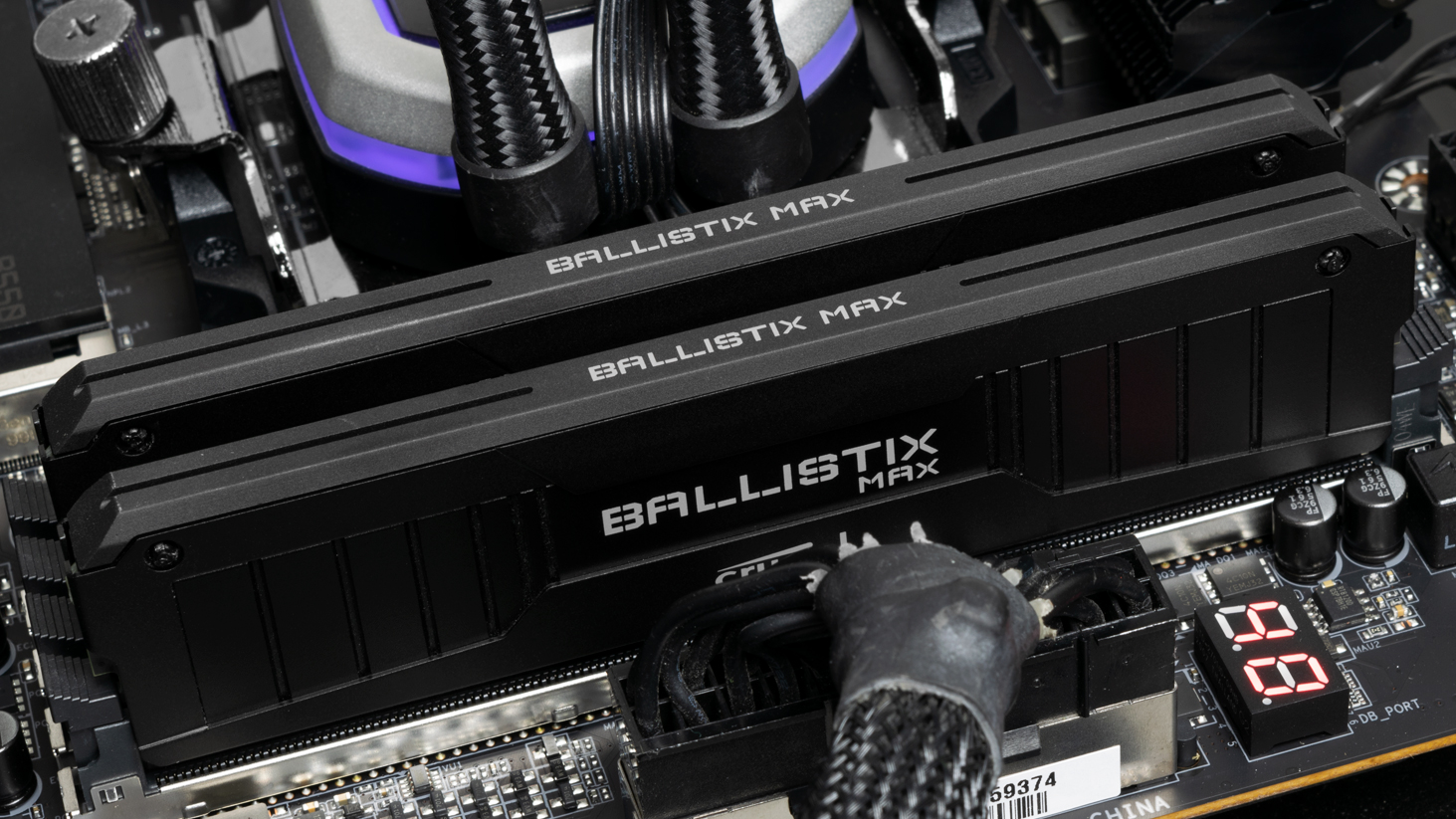
The Ballistix Max DDR4-5100 press kit came inside an exclusive Pelican case with some added accessories. Unfortunately, Crucial ships the retail kit in its standard packaging without the bells and whistles we found in the reviewer kit.
Fittingly, the combination to unlock the padlock is 5-1-0-0. Inside, we found a small LEGO figurine of The Flash (alluding to how fast the Ballistix Max DDR4-5100 memory modules are), an electric screwdriver with an integrated light and a set of corresponding tips, along with a Strike Force Energy packet in case we needed a shot of energy during overclocking sessions.
The Ballistix Max memory modules are essentially a replica of the Ballistix Max RGB, sans the RGB lighting. The black, anodized aluminum heat spreader looks minimalistic, but in a good way, explaining why Crucial has been reluctant to alter the design. Even without the RGB diffuser, the Ballistix Max measures 39.17mm (1.54 inches) tall, which isn't intrusive at all. These shouldn't present any compatibility issues with many CPU air coolers.
Crucial commercializes the Ballistix Max DDR4-5100 in a dual-channel 16GB package, meaning you get two memory modules that are each 8GB in capacity. The memory modules are manufactured with an eight-layer PCB, utilizing Micron's own D9TNW (MT40A1G8WE-075E:B) integrated circuits (ICs), known by most people as Micron B-die. The Ballistix Max DDR4-5100 retails for $899.99, and rightfully so since Crucial invested a lot of time into binning Micron B-die ICs that can hit DDR4-5100.
Get Tom's Hardware's best news and in-depth reviews, straight to your inbox.
Without any surprises at all, the memory defaults to DDR4-2666 with 19-19-19-43 timings. Crucial includes one XMP that profile automatically cranks the memory modules up to DDR4-5100 and sets the timings and DRAM voltage to 19-26-26-48 and 1.5V, respectively. For more on timings and frequency considerations, see our PC Memory 101 feature, as well as our How to Shop for RAM story.
Comparison Hardware
| Memory Kit | Part Number | Capacity | Data Rate | Primary Timings | Voltage | Warranty |
|---|---|---|---|---|---|---|
| Crucial Ballistix Max | BLM2K8G51C19U4B | 2 x 8GB | DDR4-5100 (XMP) | 19-26-26-48 (2T) | 1.50 | Lifetime |
| Thermaltake ToughRAM RGB | R009D408GX2-4600C19A | 2 x 8GB | DDR4-4600 (XMP) | 19-26-26-45 (2T) | 1.50 | Lifetime |
| Patriot Viper 4 Blackout | PVB416G440C8K | 2 x 8GB | DDR4-4400 (XMP) | 18-26-26-46 (2T) | 1.45 | Lifetime |
| Klevv Cras XR | KD48GU880-40B190Z | 2 x 8GB | DDR4-4000 (XMP) | 19-25-25-45 (2T) | 1.40 | Lifetime |
| TeamGroup T-Force Xtreem ARGB | TF10D416G3600HC14CDC01 | 2 x 8GB | DDR4-3600 (XMP) | 14-15-15-35 (2T) | 1.45 | Lifetime |
On this occasion, we couldn't test the Ballistix Max DDR4-5100 memory on our Intel platform. Neither our Core i7-10700K nor Core i9-10900K had a strong enough IMC (integrated memory controller) to handle DDR4-5100.
It wasn't smooth sailing on the AMD platform, either. While our Ryzen 5 3600's IMC was more forgiving, our ASRock B550 Taichi simply wouldn't post with the memory. It wasn't until we switched over to Gigabyte's B550 Aorus Master that we finally found the Ryzen 5 3600 and the Ballistix Max DDR4-5100 kit in complete harmony. Naturally, you'll need to make sure that your chip and motherboard can support these types of clocks before you splurge on this pricey kit. As usual, our MSI GeForce RTX 2080 Ti Gaming Trio handled the graphical workloads.
AMD Performance
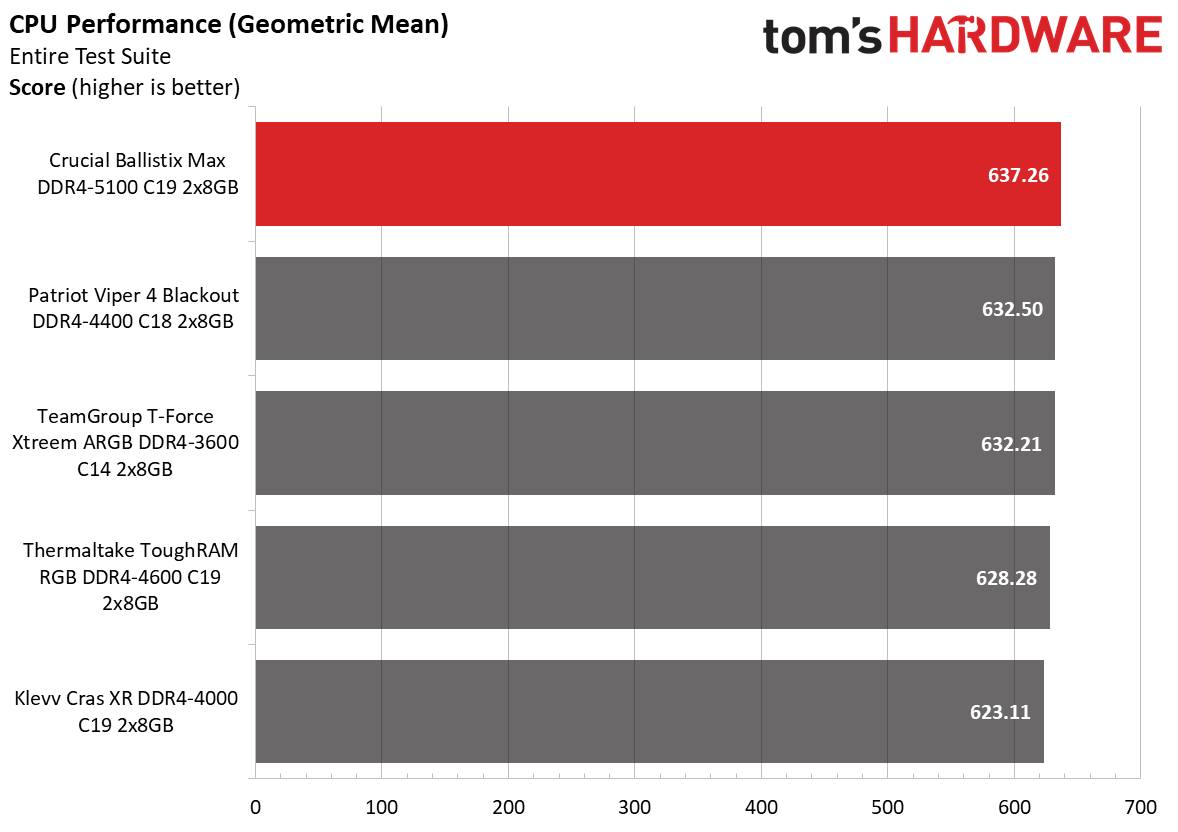
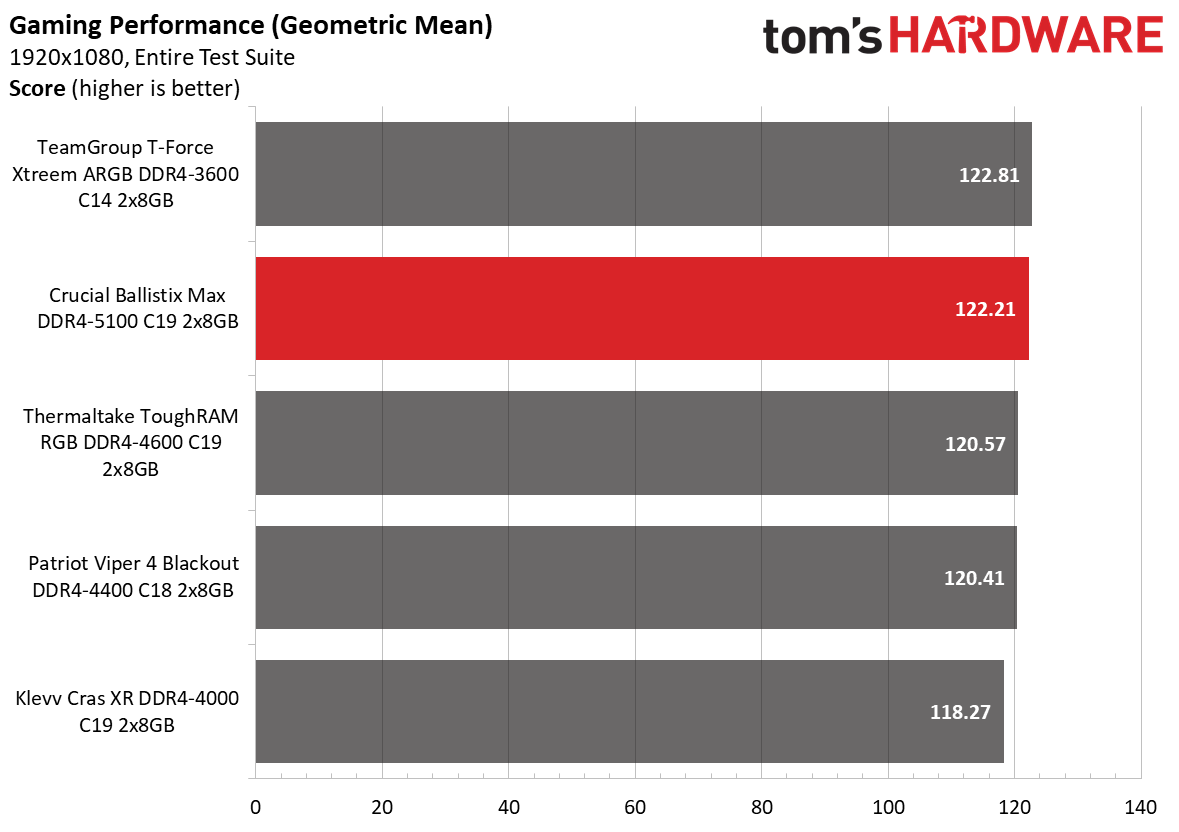
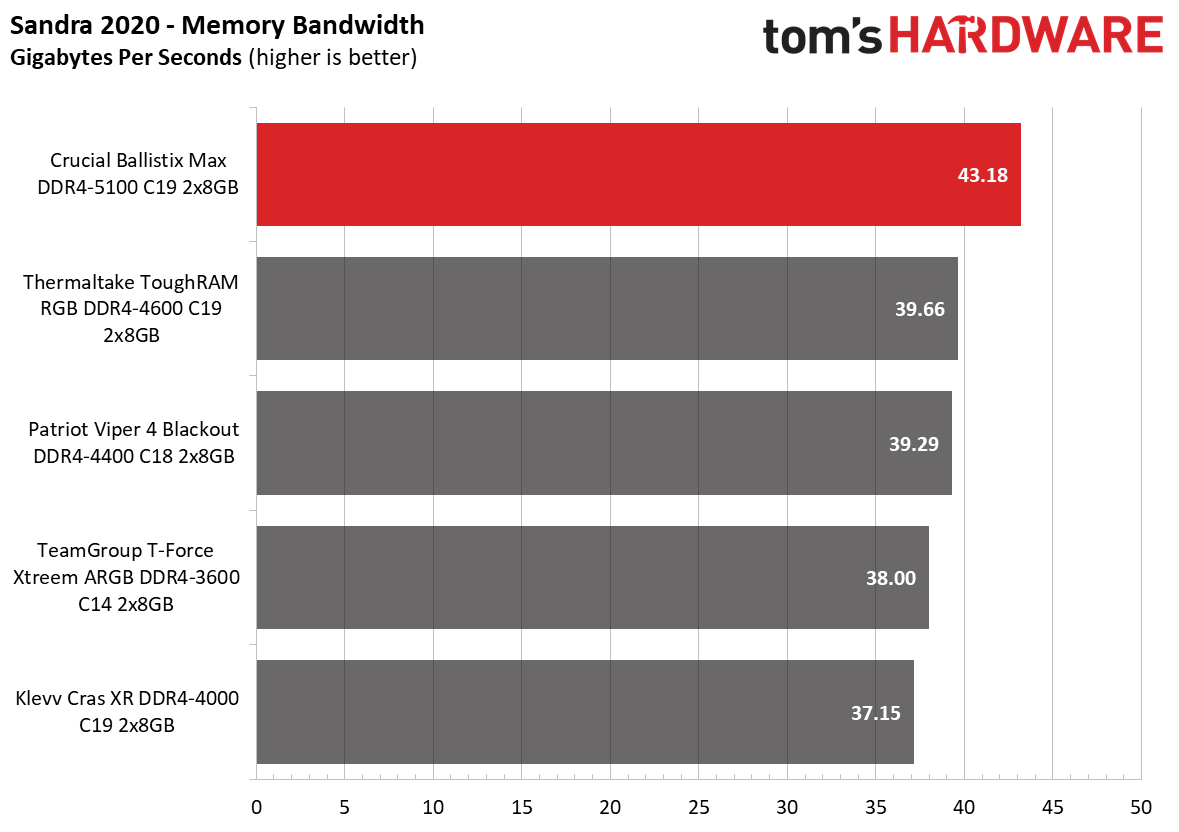
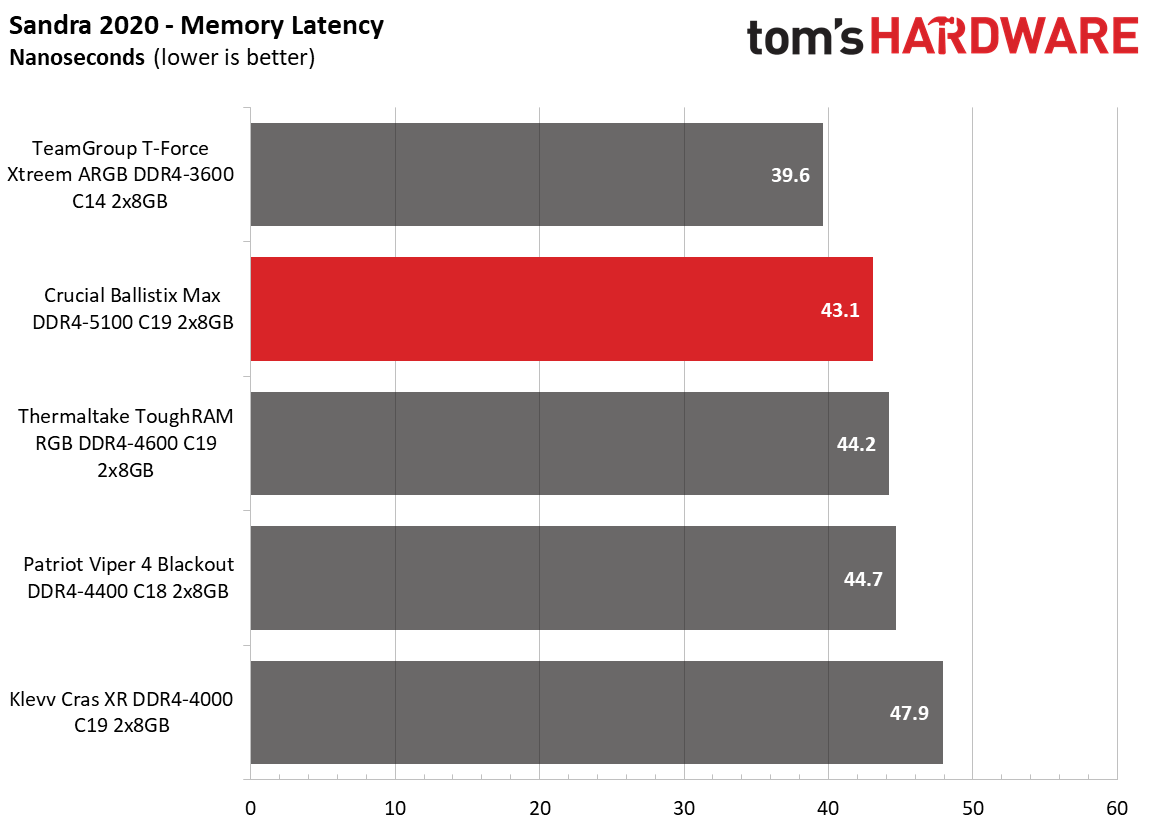
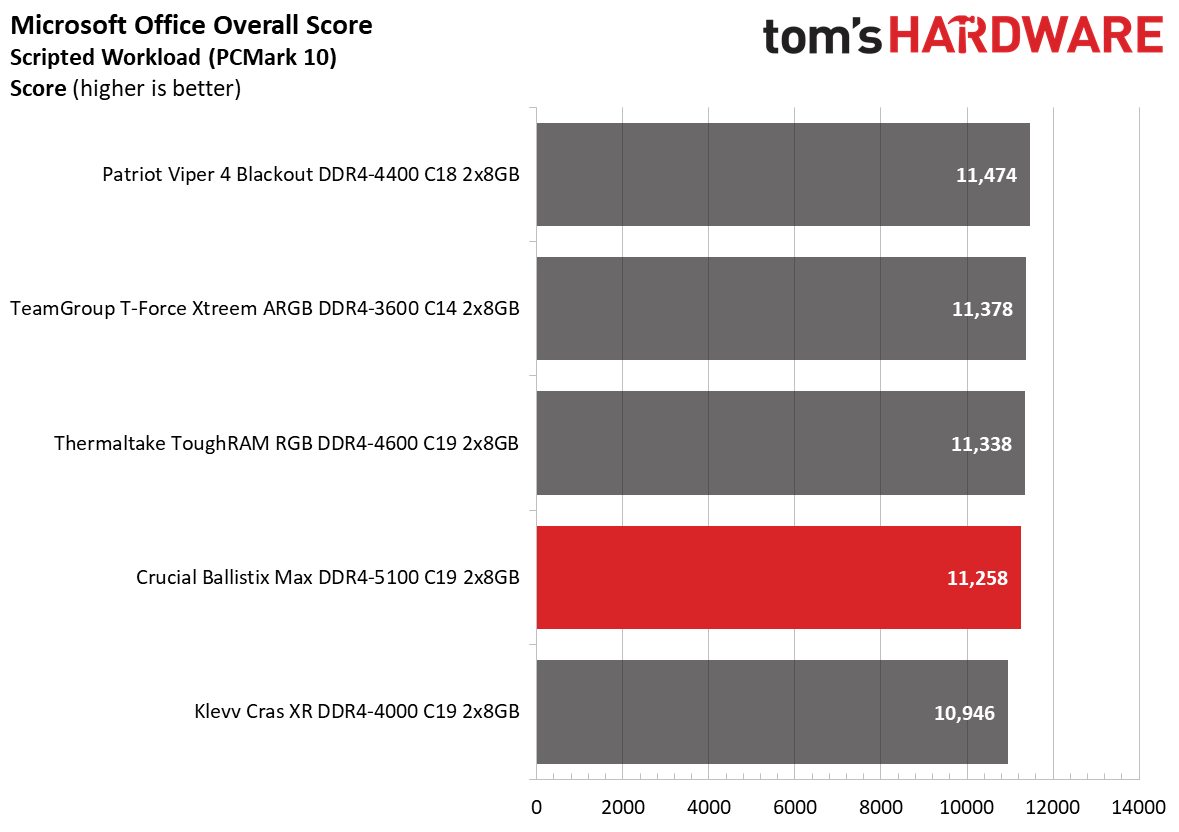
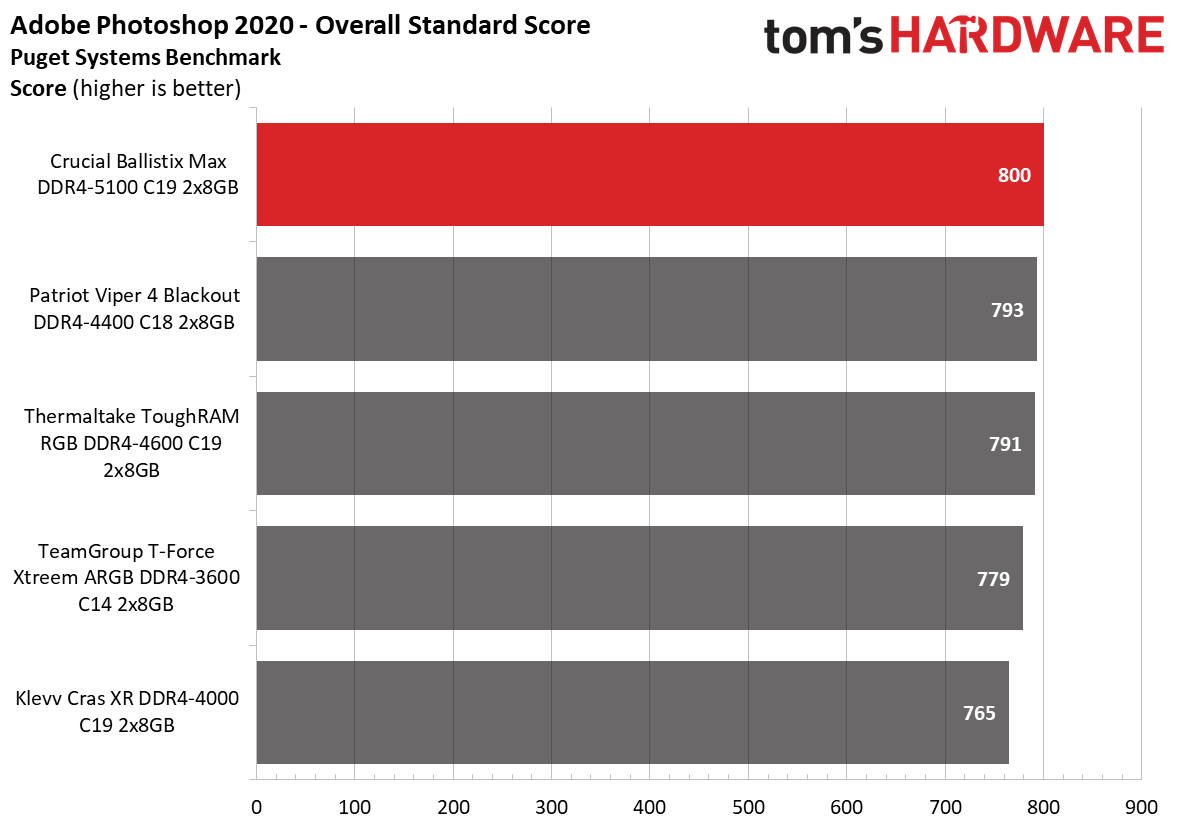
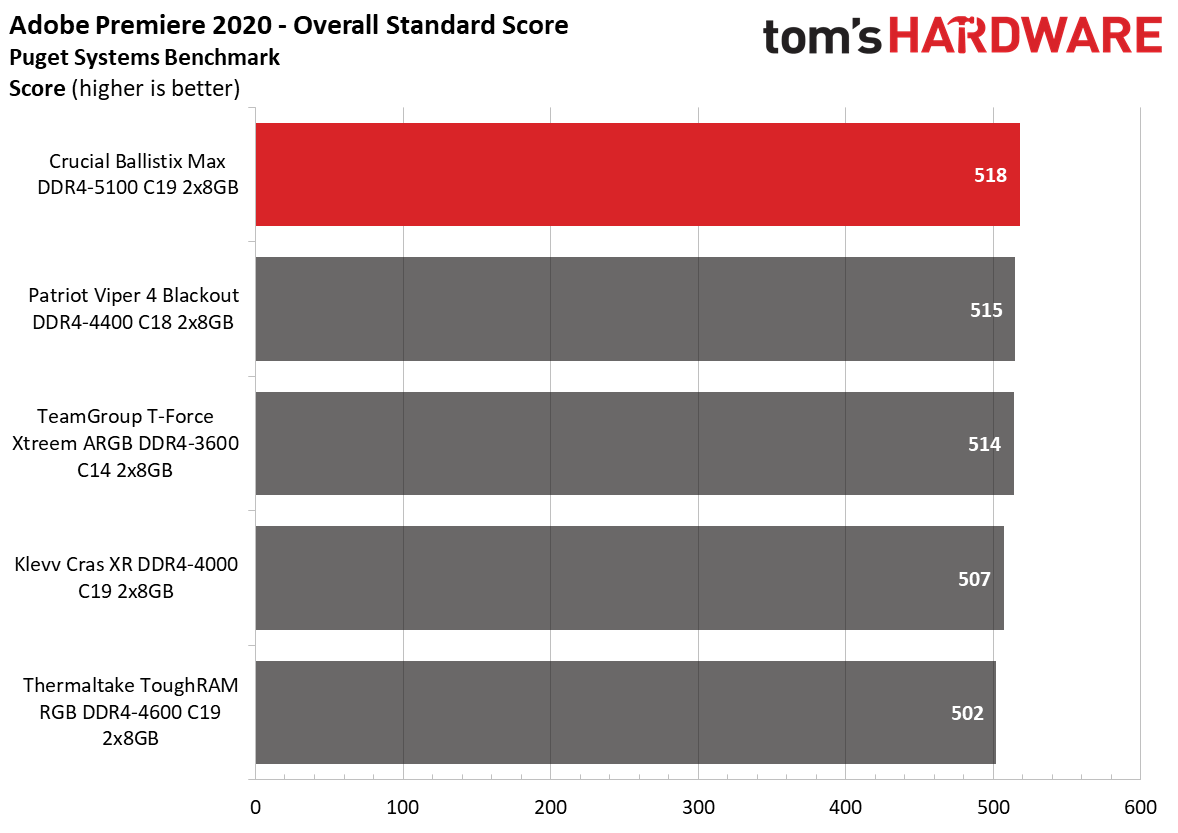
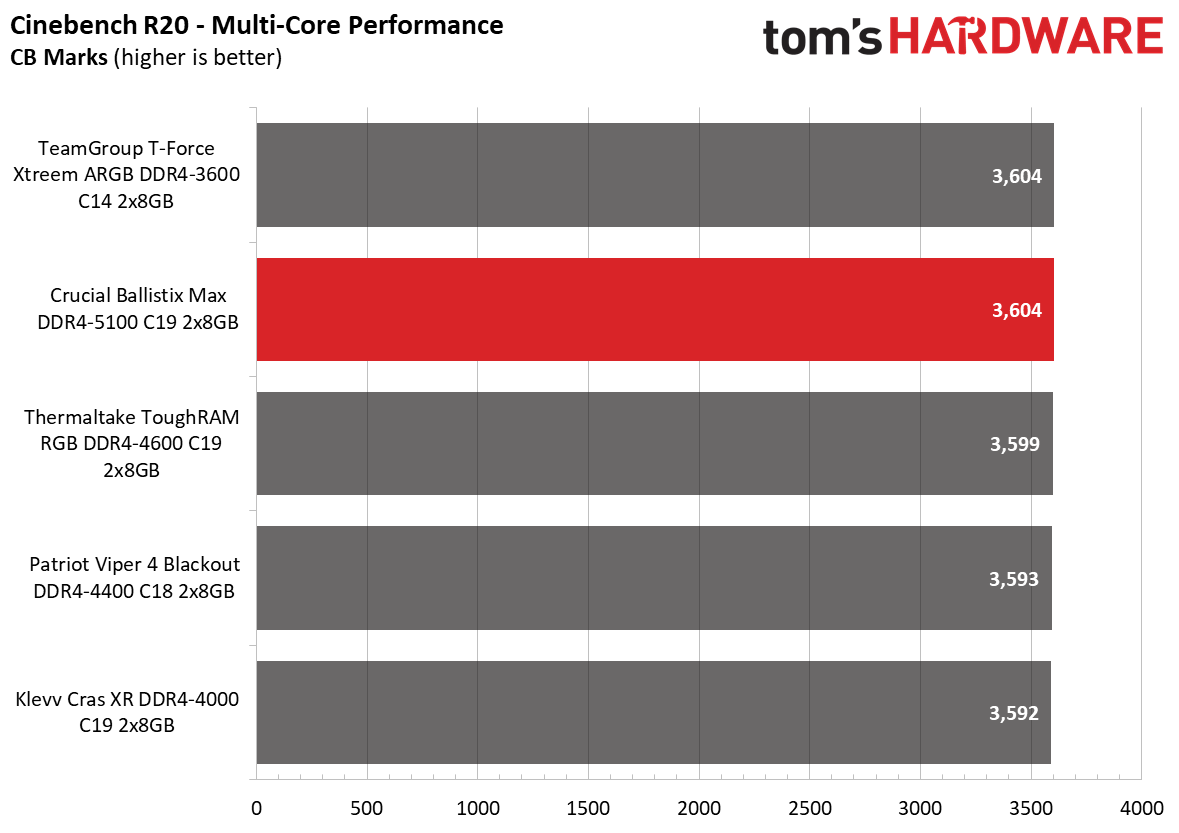
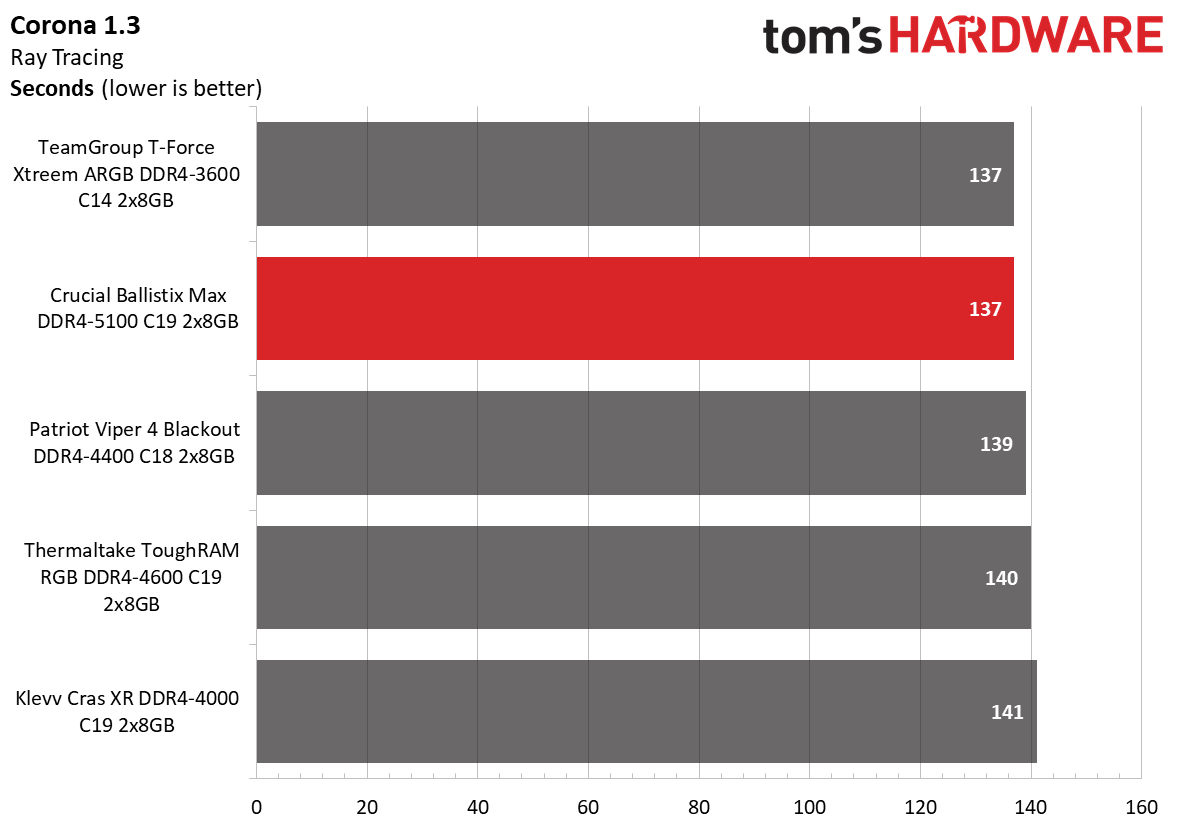
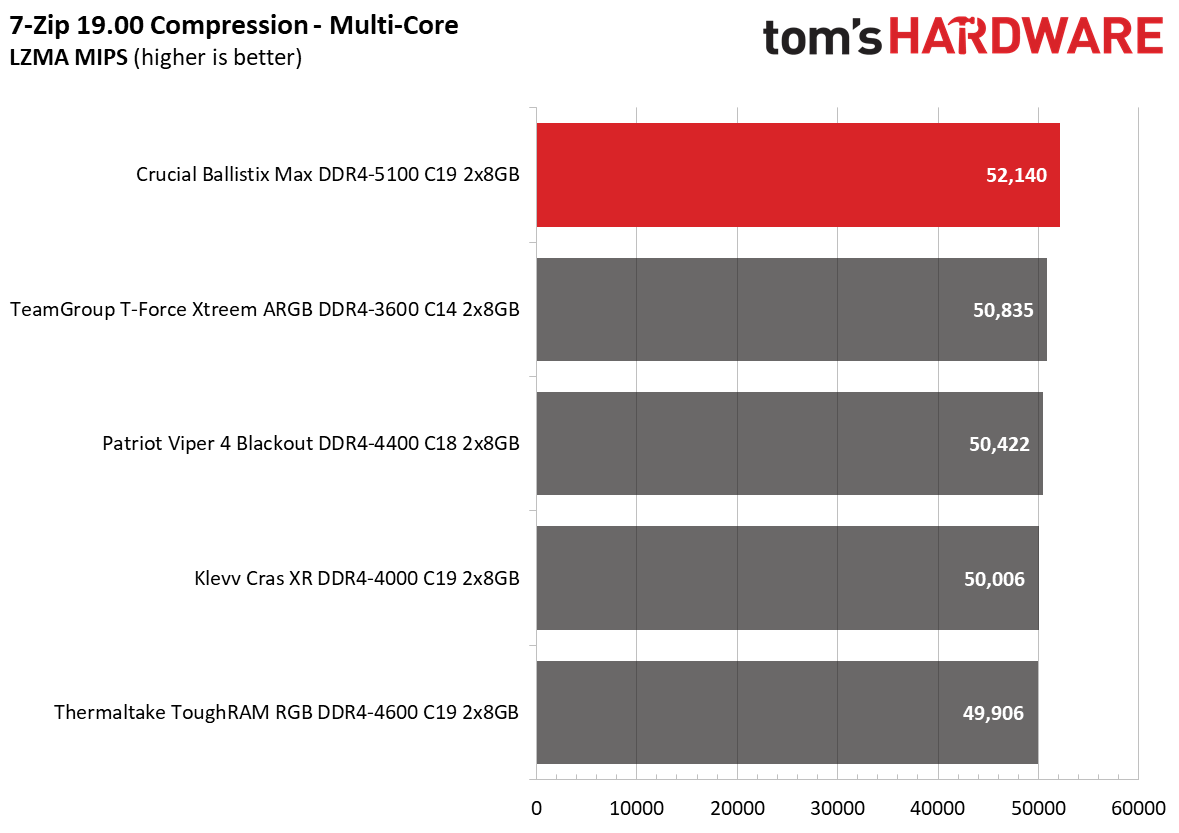
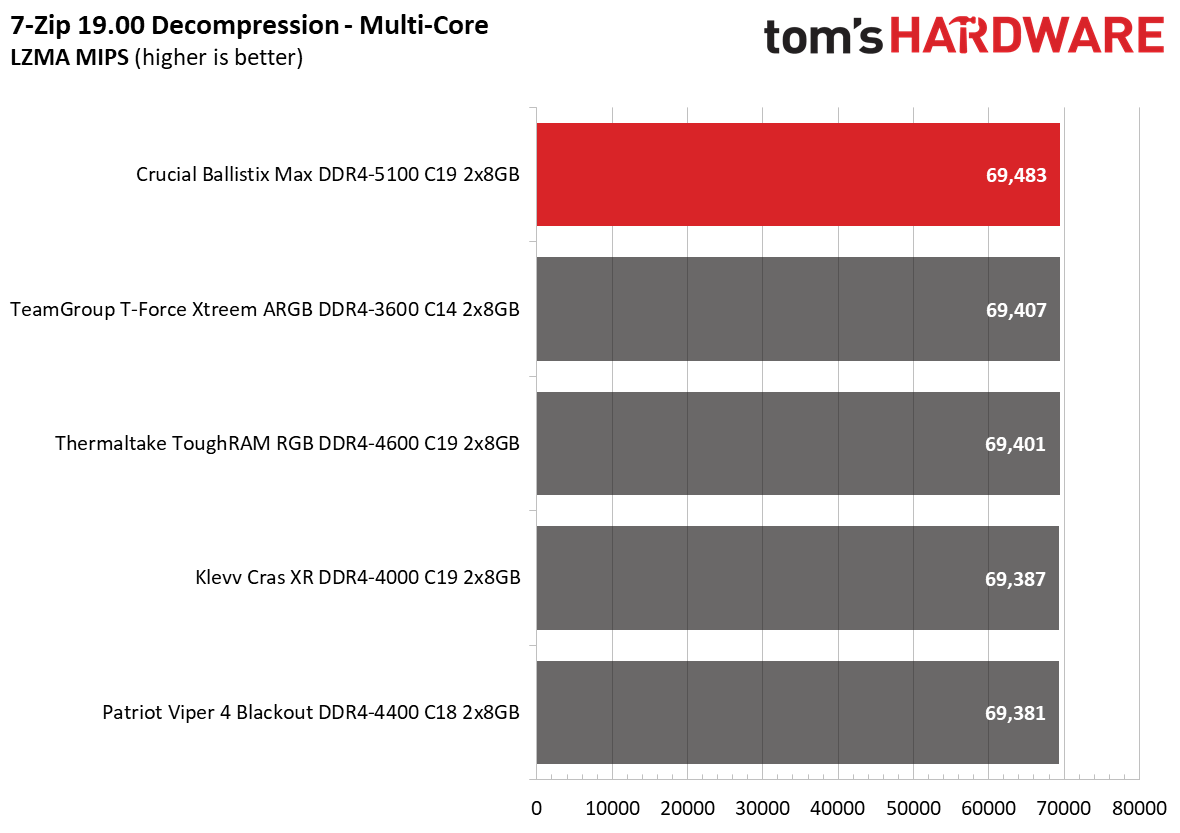
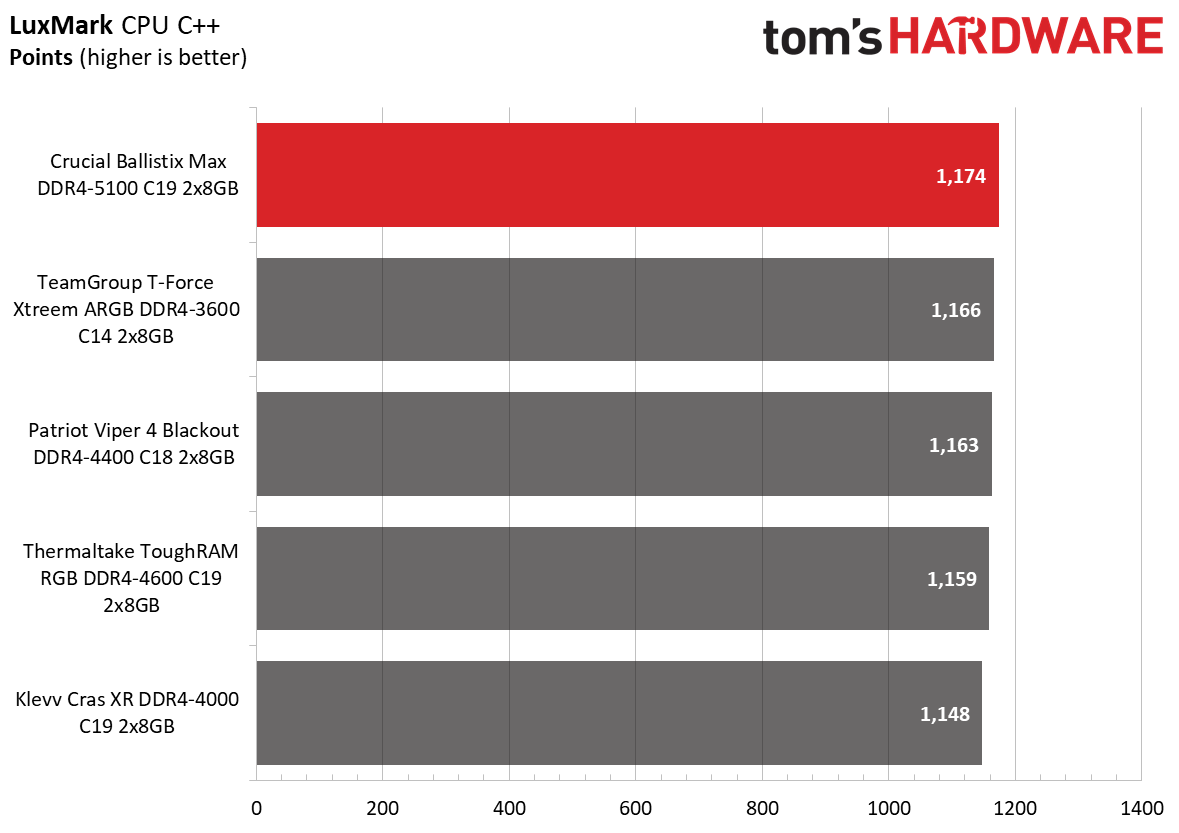
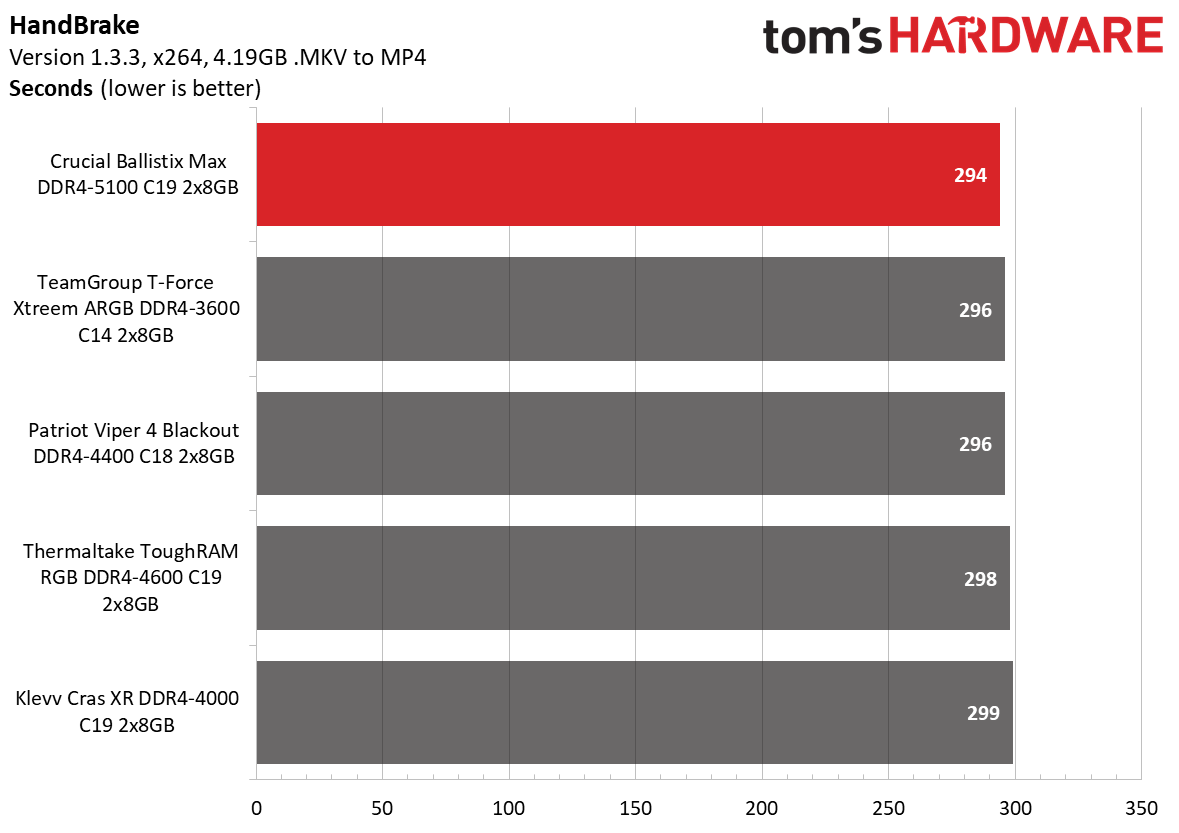
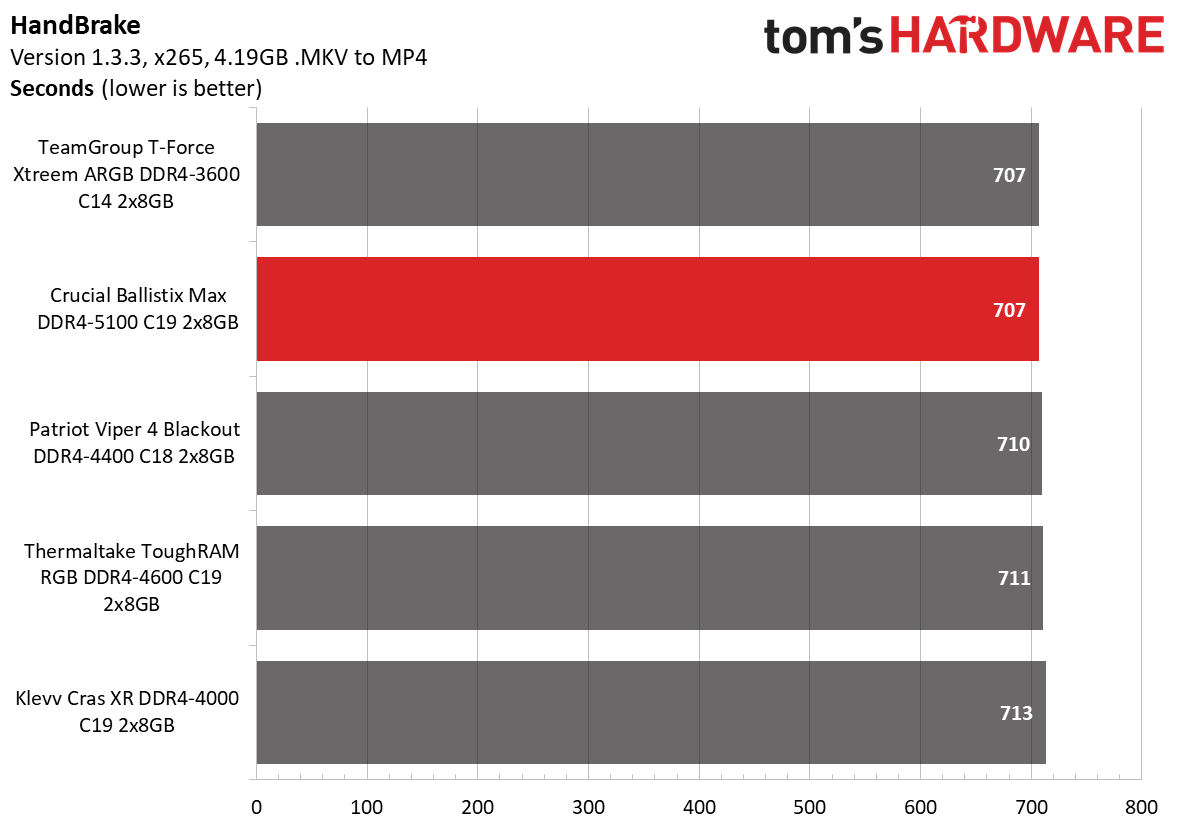
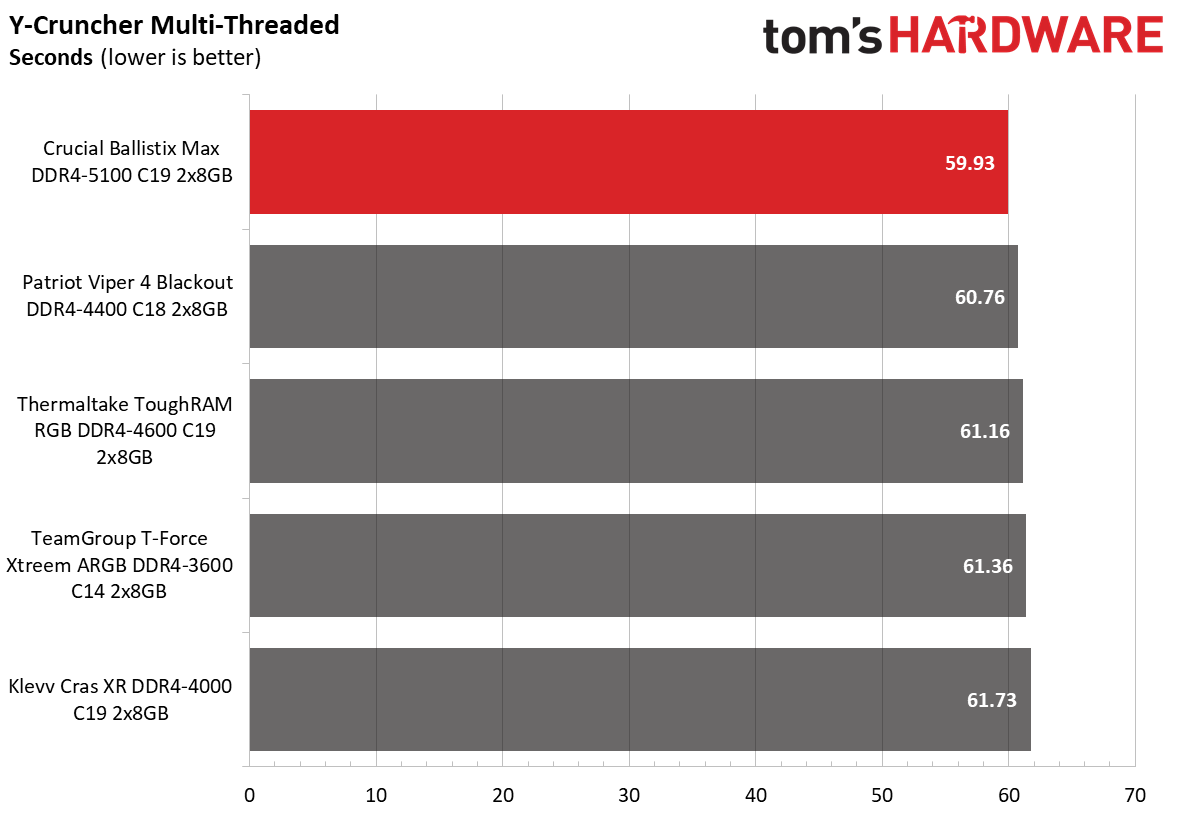
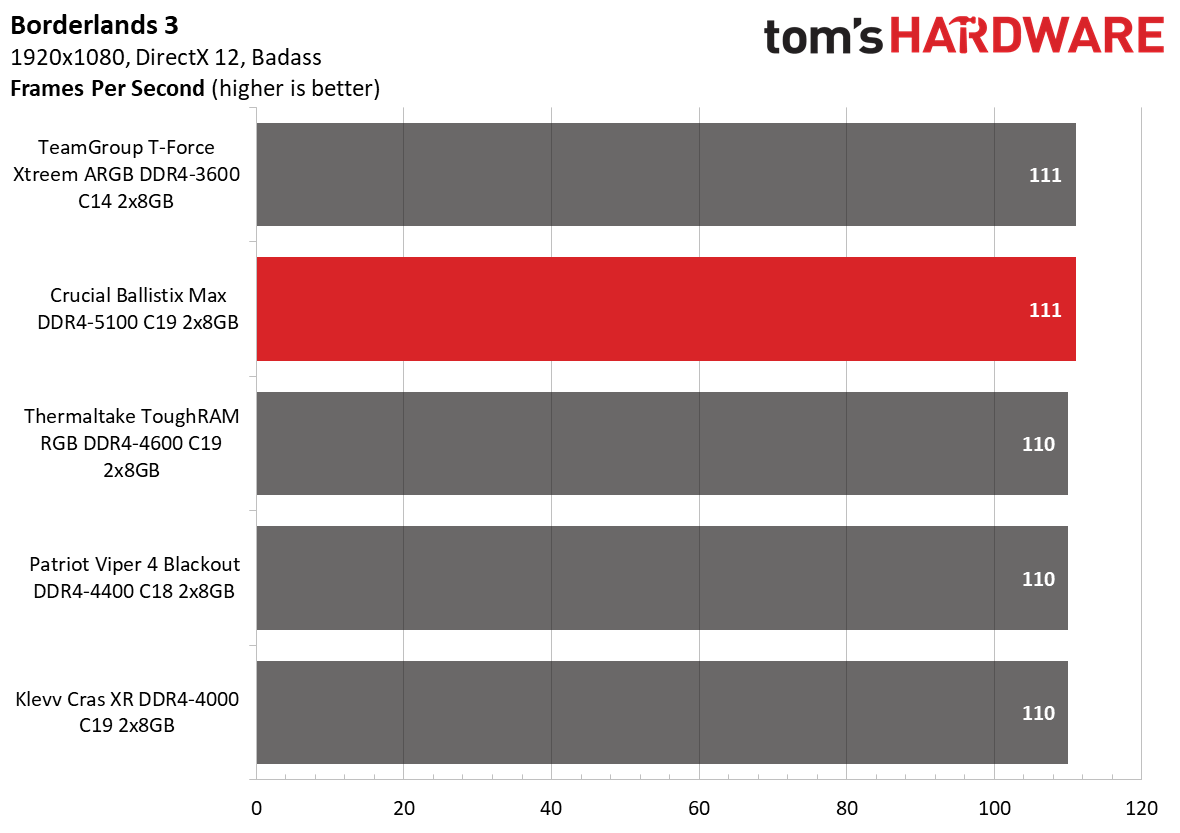
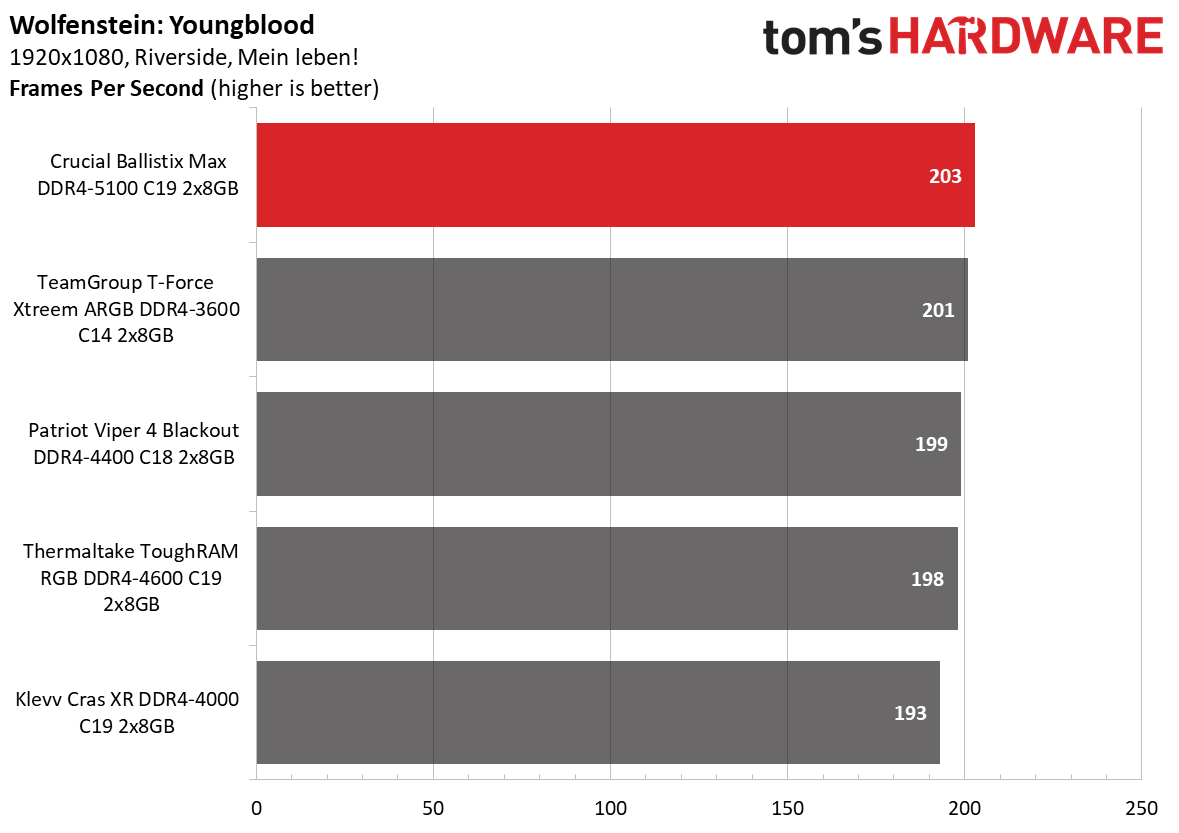
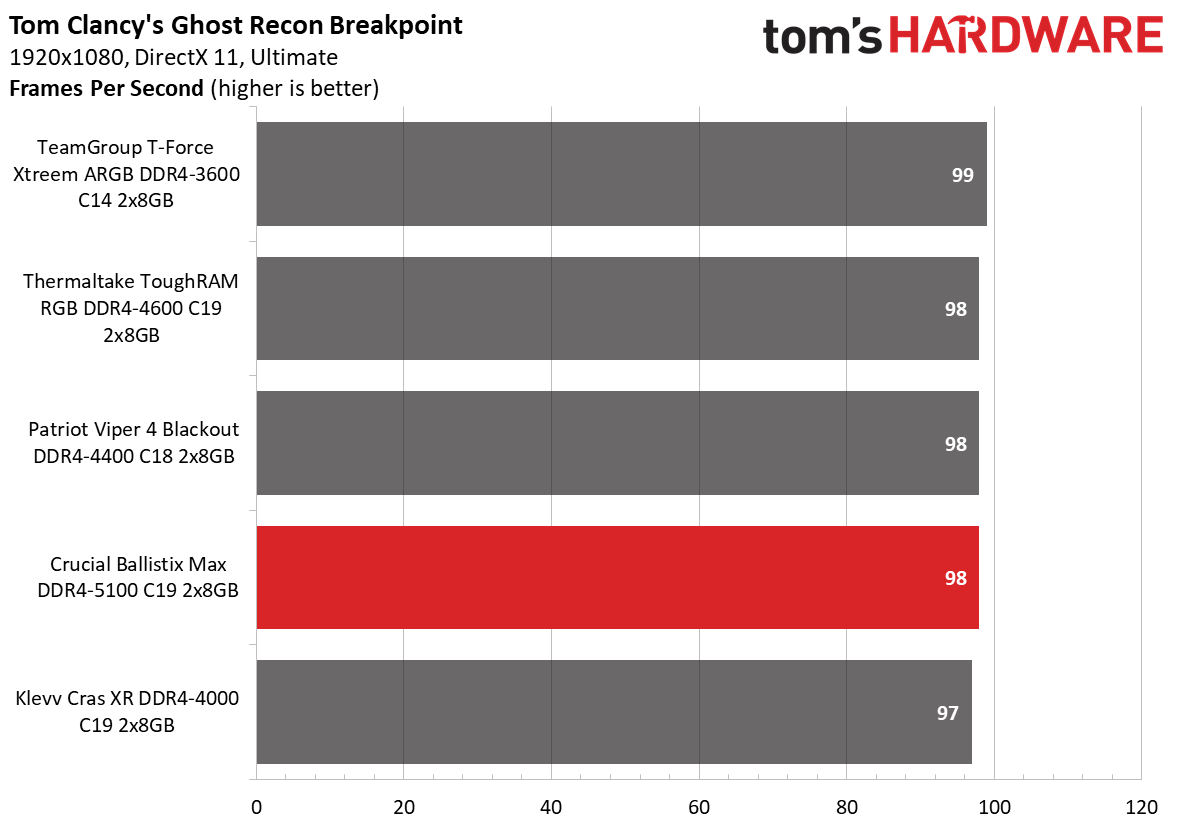
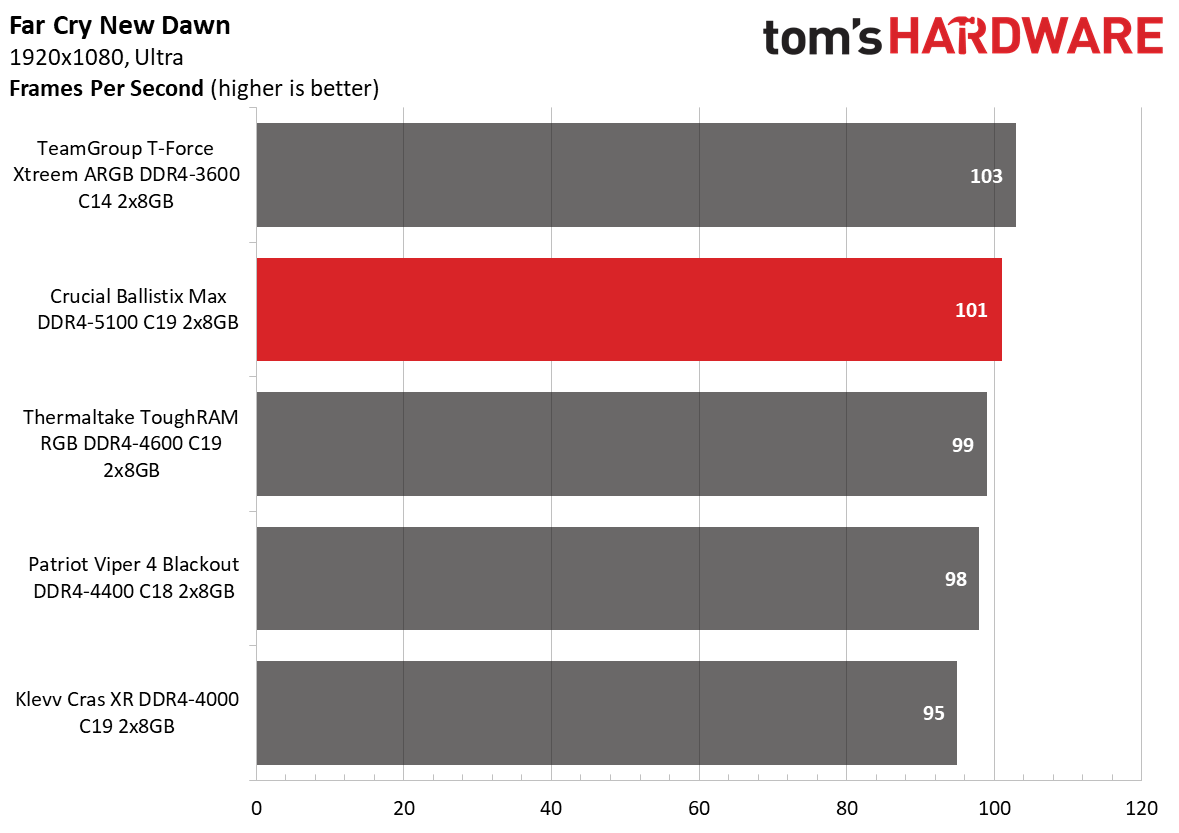
It's common knowledge that Ryzen processors have a latency penalty when the chip's Infinity Fabric clock (FCLK) and the memory clock (MCLK) are not on the same page (1:1 ratio). However, if you go up high enough on the data rate spectrum, you'll eventually hit a point where the higher data rate negates the penalty.
The Ballistix Max DDR4-5100 outpaced its competitors on our application RAM benchmarks without much effort. The memory was faster than the T-Force Xtreem ARGB DDR4-3600 C14, where DDR4-3600 is widely considered the sweet spot for Ryzen processors. It wasn't a perfect performance, though, as the Ballistix Max DDR4-5100 had a bad showing in the Microsoft Office tests where it fell behind other slower rivals.
Regarding gaming performance, the Ballistix Max DDR4-5100 is right up there with the best. The memory kit was only a few decimal points from matching the T-Force Xtreem ARGB DDR4-3600 C14's performance.
Overclocking and Latency Tuning
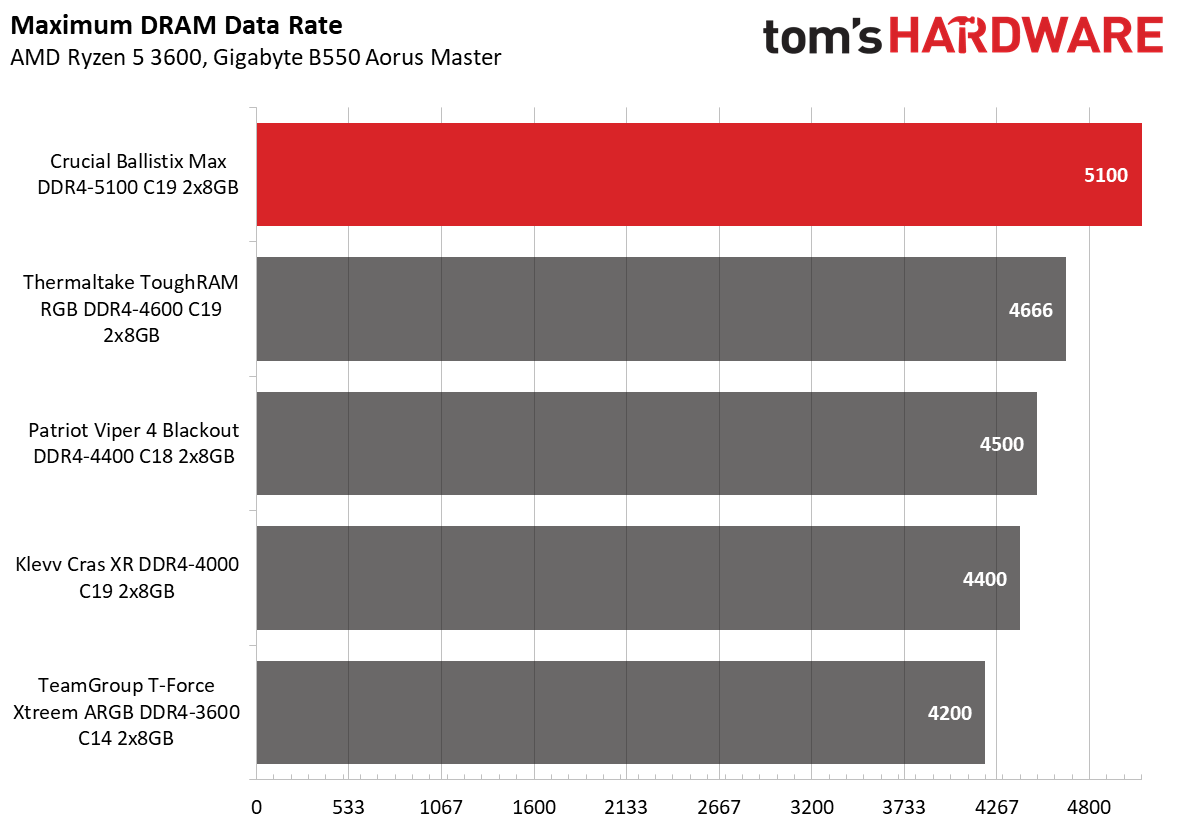
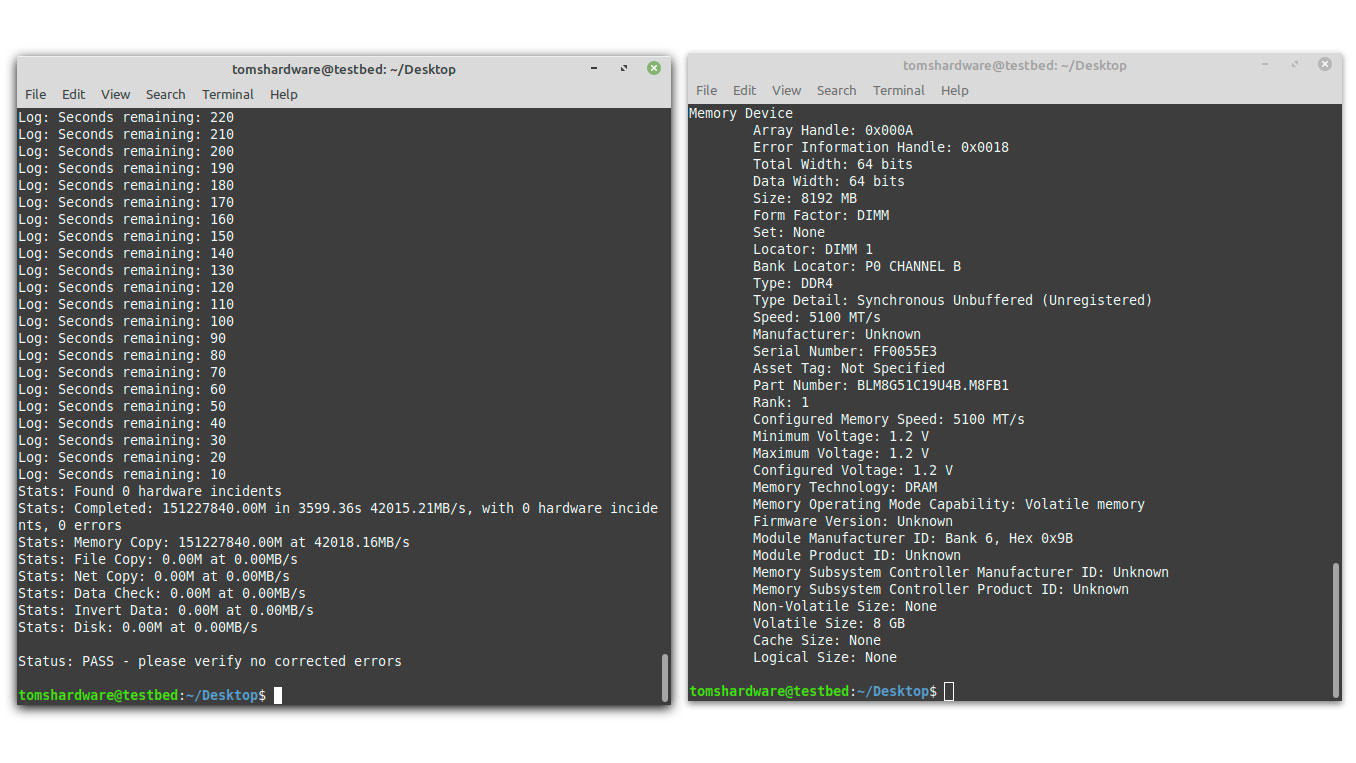
After some thorough testing, we determined that our Ryzen 5 3600 sample has hit a wall with DDR4-5100. The chip simply wouldn't budge beyond that frequency. Sadly, we're still in the middle of the great Ryzen 5000 shortage, so finding a Zen 3 processor at a reasonable price is practically a wild-goose chase. Rest assured that we will definitely revisit the overlocking headroom aspect of the Ballistix Max DDR4-5100 once we get our hands on a more proficient Intel or AMD processor.
Lowest Stable Timings
| Memory Kit | DDR4-3600 (1.46V) | DDR4-4000 (1.45V) | DDR4-4400 (1.45V) | DDR4-4500 (1.50V) | DDR4-4600 (1.55V) | DDR4-4666 (1.56V) | DDR4-5100 (1.60V) |
|---|---|---|---|---|---|---|---|
| Crucial Ballistix Max DDR4-5100 C19 | N/A | N/A | N/A | N/A | N/A | N/A | 17-25-25-48 (2T) |
| Thermaltake ToughRAM RGB DDR4-4600 C19 | N/A | N/A | N/A | N/A | 18-24-24-44 (2T) | 20-26-26-45 (2T) | N/A |
| Patriot Viper 4 Blackout DDR4-4400 C18 | N/A | N/A | 17-25-25-45 (2T) | 21-26-26-46 (2T) | N/A | N/A | N/A |
| Klevv Cras XR DDR4-4000 C19 | N/A | 18-22-22-42 (2T) | 19-25-25-45 (2T) | N/A | N/A | N/A | N/A |
| TeamGroup T-Force Xtreem ARGB DDR4-3600 C14 | 13-14-14-35 (2T) | N/A | 19-19-19-39 (2T) | N/A | N/A | N/A | N/A |
It isn't every day that we get a memory kit with the caliber of the Ballistix Max DDR4-5100 in our labs. While we were eager to pump huge amounts of voltage into the memory to see how high it'll go, we also wanted to preserve its integrity. For academic purposes, we've increased the DRAM voltage from the XMP default of 1.5V to 1.6V to get some headroom to optimize the timings. Logically, 1.6V is not a voltage that we would recommend for daily usage.
The Ballistix Max DDR4-5100 had no problems running stably with a CAS Latency of 17, which was pretty amazing considering the frequency that the memory operates at. While it was possible to drop both the tRCD and tRP from 26 to 25, we didn't have any luck with the tRAS, though. Any value below 48 wasn't stable. The final outcome resulted in 17-25-25-48.
Bottom Line
The Ballistix Max DDR4-5100 isn't your typical memory kit, so the set-it-and-forget-it approach will not fly here. First and foremost, you'll need to own a processor with a competent IMC to run DDR4-5100 in conjunction with a motherboard that supports that frequency. The memory will likely require a bit of patience and manual finetuning too, which might not be everyone's cup of tea. If you're not into that type of activity, you'll probably be better served by a mainstream kit that doesn't push the frequency boundaries.
Crucial's lightning-fast memory will in all likelihood appeal to professional overclockers that need quality memory to break world records, or that inner circle of elite enthusiasts that love exotic hardware or simply want that last percent of performance that's on the table.
We're nearing the end of the DDR4 era, so the Ballistix Max DDR4-5100 could be the highest-frequency DDR4 memory kit that we see before DDR5 hits the market next year. Crucial sells the Ballistix Max DDR4-5100 for $899.99. With that kind of money, you could probably put together an entire gaming PC. Crucial only produced roughly 200 Ballistix Max DDR4-5100 kits, so they may ultimately turn into a collector's item.

Zhiye Liu is a news editor, memory reviewer, and SSD tester at Tom’s Hardware. Although he loves everything that’s hardware, he has a soft spot for CPUs, GPUs, and RAM.
-
VforV I'm actually more impressed how good (even better in lots of cases) the TeamGroup T-Force Xtreem ARGB 3600 CL14 memory kit is... and it's cheaper, compared to the Crucial one.Reply -
Gomez Addams I agree - the TeamGroup 3600 memory looks much more impressive to me. The first graph said it all - the numbers were 637 to 632. That is less than a one percent difference and look at the difference in price. It makes little sense to me. I would be more inclined to buy a CPU better than a 3600X than this memory.Reply -
JOSHSKORN I paid half that amount for my 2800 Mhz 16GB kit in 2014. I just replaced it, people are re-selling the kit for $30.Reply -
maestro0428 No benchmarks? NVMD, I forget they are deep into the list and I gotta cycle through them. Ugh.Reply
